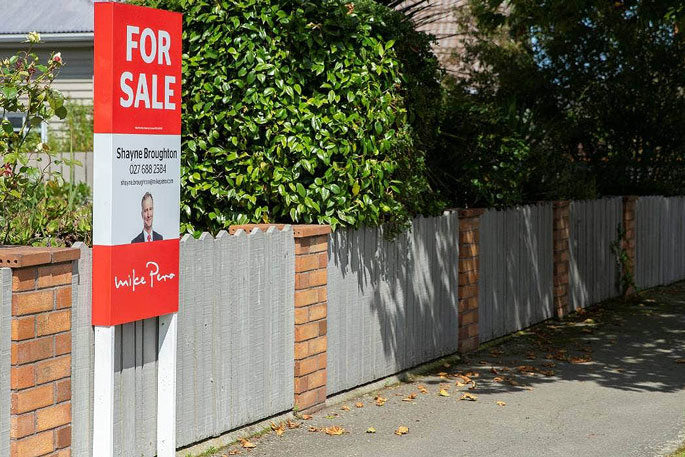First home buyers have been the hardest hit by the slowing market with their share of purchases falling to 22.5 per cent in the first quarter of this year, a property researcher says.
That was higher than the long-term average of 21.8 per cent, but down sharply from the record level of 26 per cent at the end of 2021, CoreLogic's latest First Home Buyer report says.
The report also showed the proportion of first home buyers in the market over the same period had fallen to 2017 levels, while the number of purchases they made was at the lowest level since 2014.
In the wider Wellington region, which included Lower Hutt, Upper Hutt and Porirua, they still accounted for over 30 per cent of activity. That was two percentage points higher than the area's long-term average.
First home buyers market share in Dunedin (25 per cent), Hamilton (25 per cent) and Christchurch (26 per cent) was also above the average, while in Auckland (25 per cent) it was back to normal and in Tauranga (16 per cent) it was just under average.
But the drop in first home buyers market share occurred within the overall slowdown of the market, as total sales volumes had also fallen.
CoreLogic chief property economist Kelvin Davidson says although the market had turned, first home buyers have not been in a position to take advantage of weaker prices and less competition.
Some aspiring homebuyers might have willingly pulled back from the market with the intention of trying to enter the market at a lower purchase price later, he says.
'But we suspect that's only a small part of the explanation. It's more likely their market share has fallen on the back of the tighter credit environment and the increased cost of servicing a mortgage.
'While most mortgage holders are feeling the sharp rise in mortgage rates, it is first home buyers who have been most impacted by the broader credit crunch.”
The tightening of lending criteria, due to the reintroduced loan-to-value ratios and the Credit Contracts and Consumer Finance Act (CCFA) rules, had bitten hard for those with low deposits or less disposable income, Davidson says.
'Not only are banks approving them less often, but they often now have to borrow less money.”
Housing affordability was also stretched throughout the country, with the average deposit taking more than 11.5 years to save. In Tauranga and Auckland it took even longer, at 15.8 and 13.5 years respectively.
The report also contained hints that first home buyers were making compromises in order to get into the market, Davidson says.
While 73 per cent of their purchases over the first quarter were houses, back in 2019 houses represented about 80 per cent of purchases.
'Some buyers might want an apartment, or a townhouse, over a house, but for many the choice is likely to have been forced upon them by affordability concerns,” he says.
Another hint at compromise was the national first home buyer median price compared to the all buyer median price.
The first home buyer median price was $752,007 in the first quarter, and was well below the all buyer median of $860,00.
Davidson says the difference between the prices had slipped to 87 per cent, down from between 91 per cent and 92 per cent where it has been at during the past five years.
'This suggests they haven't been able to keep pace with the wider market.”
First home buyers paid a median price lower than the all buyer median in each of the main centres, but the biggest gap was in Auckland where the first home buyer median was $1.04 million compared to $1.23m.
In Wellington, the first home buyer median was $890,000, in Tauranga $800,000 and in Hamilton about $750,000. In Christchurch and Dunedin it was about $600,000.
The market was likely to remain tough for first timers for some time, with the LVRs here to stay for the time being and mortgage rates still rising, Davidson says.
'But there is a two speed market at play, so those who have managed to secure credit will be able to secure some bargains in a market where the supply, demand balance has tipped in favour of buyers and there is more choice.”
'The looming relaxation of the CCCFA rules may help too, but it won't be enough for many others who will continue to struggle. We anticipate the overall proportion of first home buyers may stay more subdued this year.”



1 comment
I would wonder..........
Posted on 11-05-2022 20:57 | By groutby
..how many potential 1st home buyers have pulled away from the market today in a hope that prices will reduce tomorrow to a level more suitable, and let mortgage interest rates rise further as predicted and end up long term paying more anyhow in interest?....very uncertain, and sadly for everyone even 'experts' have conflicting opinions in these strange times.......
Leave a Comment
You must be logged in to make a comment.